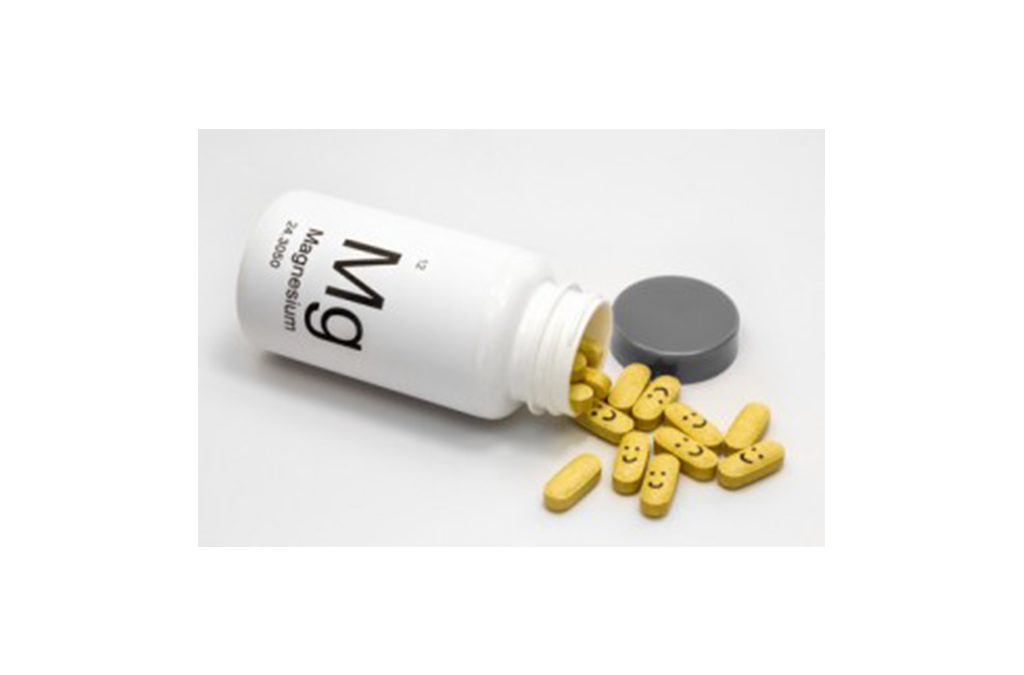Magnesium is one of my favourite supplements and has been largely underrated. Magnesium is one of the most common nutrient deficient in adults, and is so important. It is involved in hundreds of biochemical processes including energy production, muscle relaxation, hormone processing, and bone health. The most common conditions magnesium is used for (but not limited to) include high blood pressure, constipation, fibromyalgia, chronic pain, stress, osteoporosis, headaches, PMS, asthma and restless leg syndrome. Higher intakes of magnesium have demonstrated an increase in bone mineral density, flexibility and integrity, especially in postmenopausal and elderly individuals.
What causes low levels of Magnesium?
Due to the deteriorating soil quality, lifestyle and diet factors in North America, majority of individuals are low in magnesium. Food processing strips our food of many of the nutrients including magnesium. Individuals with gastrointestinal issues can have poor absorption of nutrients in the gut. Calcium and magnesium compete with one another for absorption. With an increasing amount of individuals supplementing calcium alone for their bone health, can lead to low levels of magnesium. Lone calcium supplementation can also lead to calcium deposition in soft tissues contributing to arthritis and kidney stones. Ensuring adequate Vitamin D is important as well. Vitamin D increases magnesium absorption, and a low vitamin D status will impact magnesium levels. Different medications including chronic use of diuretics and proton pump inhibitor decrease magnesium absorption.
Why are there so many types of Magnesium and what do they all do?
Elemental magnesium is not stable and cannot be absorbed in our gut, so it comes bound to a carrier molecule. It can be very confusing because there are a lot of different forms of Magnesium out there, but these just indicate what carrier molecule it is bound to. These carrier molecules influence the percentage of magnesium, it’s absorption and can have health benefits themselves. Even when bound to these carrier molecules only 35%-45% of the magnesium is absorbed. The more depleted an individual is the more they will absorb. Choosing the appropriate Magnesium is very important based on the individual’s concerns.
Magnesium citrate is the most common because it is the best absorbed and inexpensive. Citric acid (citrate) is a mild laxative therefore this form has laxative properties at higher doses. It is a good choice to keep your magnesium levels up. If you require magnesium at higher doses and wish to avoid loose stools choosing something like Magnesium Glycinate would be a better option.
Magnesium Glycinate/Bisglyinate, glycine is a large molecule so there are smaller amounts of magnesium compared to glycine contained in this formula. However, it is a readily available form that is well absorbed in the gut, therefore unlikely to cause loose stools. Glycine is an amino acid and relaxing neurotransmitter, this form is a great option for promoting mental calmness and relaxation throughout the body.
Magnesium Malate is similar to magnesium glycinate, it is a larger molecule with good availability. Malic acid also contributes to ATP synthesis and energy production so optimal for treating fatigue and conditions like fibromyalgia and low energy states.
Magnesium Oxide simply means bound to oxygen. This isn’t the best choice of magnesium because it is non-chelated and therefore has a poor rate of absorption compared to other forms. But at high doses it is a muscle relaxer, nerve tonic and laxative.
Magnesium Taurate is also an amino acid. Taurine helps with cardiac muscle so this form is best for cardiac conditions and general heart health. It helps with high blood pressure, and improves the contraction of the heart without the laxative qualities.
Magnesium Sulfphate or Epsom salts are well absorbed through the skin, so if used externally can help lower blood pressure, decrease muscle tension and reduce stress. If taken internally will have a strong laxative effect, which can be dangerous.
Magnesium Chloride comes in gel/oil, which is good for topical application for cramps and muscle relaxation and has the ability to detoxify cells and tissues.
Magnesium L-threnoate is a new form. It is being studied for it’s impacts on brain function and memory improvement in Alzheimer’s and other cognitive diseases due to it’s ability to cross the blood brain barrier. Further research of this form is ongoing.
Holistic Health NW Calgary
Magnesium is an essential mineral in maintaining our health and well being. It is used in various conditions and is generally very well tolerated. Our daily requirement or RDA for magnesium in a healthy adult is 400mg/day, while some intravenous doses may be as high as 2000mg. Dietary sources of magnesium include coffee, tea, chocolate, spices, legumes, nuts, green veggies (spinach, edamame, avocado), and brown rice. If you are supplementing to improve your levels choosing the right magnesium can make a big difference.
Live your life in a way that improves your health. Contact the clinic and book your initial consultation today!

